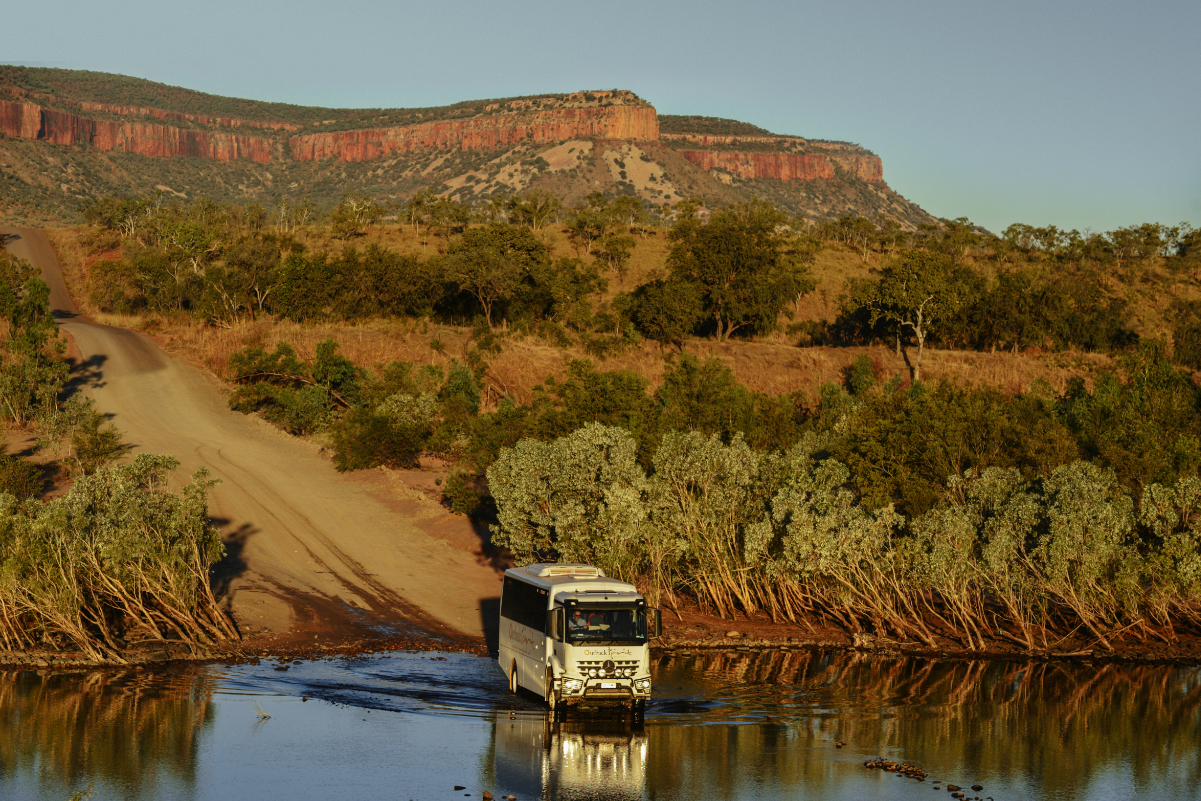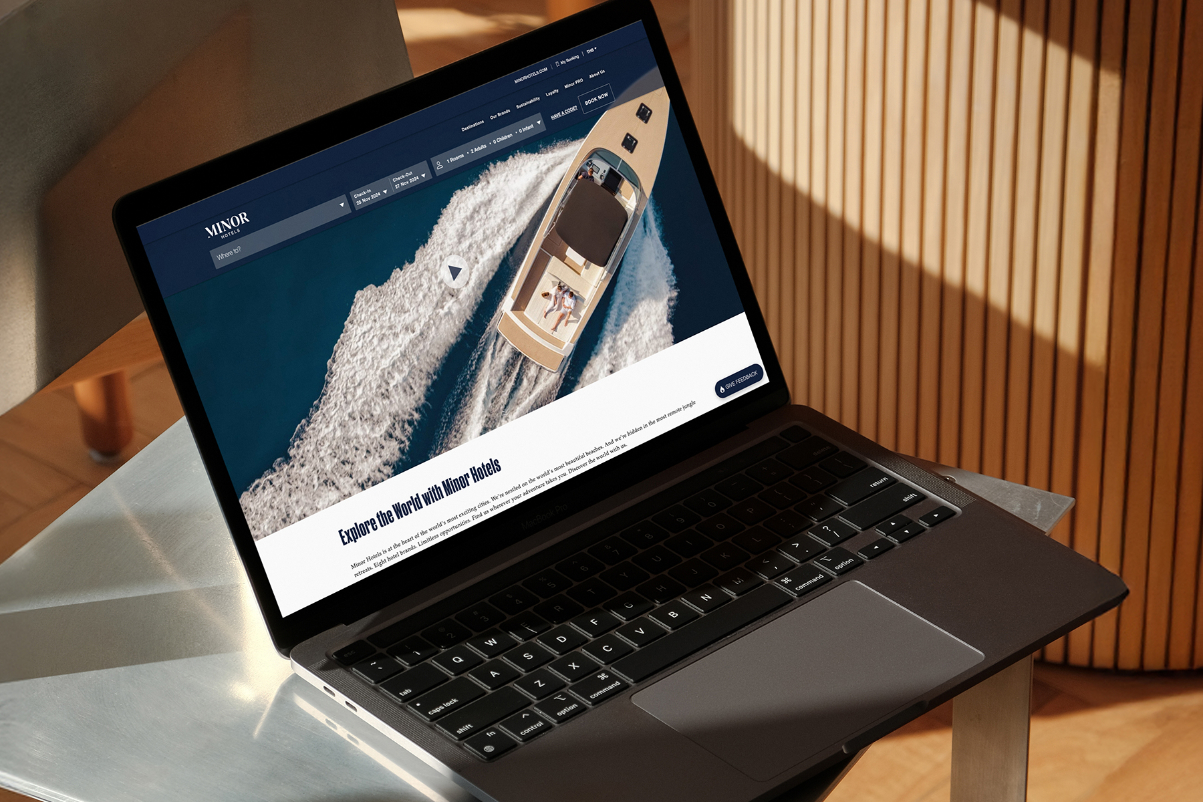Hornblower's Private Equity Backers Help It Grow Travel Experience Ambitions

Skift Take
Hornblower Group could have been a pandemic casualty, but its main private equity backer Crestview Partners doubled down on supporting the New York-based travel experiences operator — which has continued to grow through acquisitions.
Hornblower last week closed on a $430 million acquisition of Journey Beyond, an Australian ferry operator and tours and activities provider. The deal adds an array of experiences to the portfolio. Activities include scenic overland rail trips, outback glamping, multi-day visits to the Great Barrier Reef, seaplane rides, a Melbourne skydeck, and many harbor cruises.
"Our strategy is that we want to be the premier global experiences and transportation leader," said CEO Kevin Rabbitt — an operating executive on behalf of Crestview.
Hornblower's deal Down Under comes during an 18-month buying binge. It has bought tour company Walks, culinary walking tour operator Devour, Boston Harbor Cruises, and a couple of vessels for charter sailing. Last week Hornblower launched Venture Ashore, which calls itself the world's largest independent cruise excursions provider.
"With these portfolio additions, we're well on our way towards achieving our strategy," Rabbitt said. "With the pandemic coming to an end and pent-up demand out there, we expect to service about 20 million visitors annually. And we see lots of opportunities."
This activity would have seemed unimaginable in April 2020. During the depths of the pandemic, Hornblower faced a cash crunch. Restrictions crushed its flagship business of operating sightseeing boats and passenger cruise vessels, such as tours of New York's Statue of Liberty and Ellis Island.
During the worst of the crisis, Hornblower's investors Caspian Capital and Crestview Partners provided the company with a $90 million loan as a backstop to the company's privately placed loan of $675 million.
Are more acquisitions in the offing?
"We don't look at this as a sprint, right?" Rabbitt said. "This is a long-distance run. We diversified our revenue across categories. We're in 112 countries now. But there are lots of parts of the world with opportunities for us to be stronger. Throughout Continental Europe is one. Asia, too."
Global Experiences Strategy
Four years ago, Crestview Partners grabbed control of Hornblower in a leveraged buyout. The firm classifies Hornblower as being in the "media' industry on its website. Crestview's approach to building and retooling Hornblower as a group of brands bears similarities with how some media companies collect brands and invest in tech for marketing efficiencies.
When Rabbitt became CEO in July 2020, taking over from founder Terry MacRae, the group already had a lot of water-based experiences and transportation systems with a focus on North America. Rabbitt sought to expand the offerings to include more land experiences and to seek overseas markets.
"There's a large overlap in the customer bases of the types of experiences in our portfolio," Rabbit said. "The customer that sails the American Queen steamboat on the Mississippi River with us is also the same type of guest that does a sightseeing ferry ride at Niagara Falls and is also the same type of guest that might take an overland rail journey in Australia."
Hornblower has been developing ancillary tours to build around its existing portfolio. After having bought tours and activities operator Walks last year, the group has been having Walks create additional guided tours that feed off its other attractions. For example, Walks has launched a tour that times well and can be cross-sold with its Boston Harbor ferry rides and is in the process of doing the same thing at Niagara Falls.
While many of its offerings have been single-day experiences, it has been expanding into multi-day offerings, and it's interested in adding multi-day experiences of up to 15 days in length.
To support the growth, Hornblower has been investing in its technology. A year before the pandemic, it had begun to overhaul its proprietary ticketing system, called Anchor. Since then, it has completely rolled out the digital ticketing portfolio to everything except its just-acquired unit Journey Beyond.
"It's been such a powerful ticketing and digital platform that we've now licensed the software to over 15 other private providers of experiences," Rabbitt said. Clients include ferry operators, sightseeing operators, and corporate event-type water-based businesses and land-based attractions with multiple destinations. The system helps sell tickets and includes optional point-of-sale hardware.
Hornblower has also been upgrading its fleet, looking for more environmentally friendly vessels, such as new electric vehicles for its tours to Alcatraz Island in California. It also will serve as operator of a hydrogen-powered ferry owned by Switch Maritime.
The company's next step is to fine-tune its branding. A year ago, it created a few umbrella brands, such as City Experiences and American Queen Voyages. Journey Beyond will be the third umbrella group.
"The next step on the branding side is to look for waves to drive connected across the three umbrella brands beyond just our marketing capabilities," Rabbitt said. "We want our guests to understand that the company that gave them an amazing experience on their Alaska expedition also is the same company that can take them on a rail journey through the heart of Australia. We want to leverage the loyalty and the brand promise to more effectively cross-market to our guests."
Hornblower has brought all of the customer data management for its businesses, except the just-acquired Journey Beyond, into a single database so that it can follow customer purchases across brands.
It connects transactional and customer profile data with review data, meaning the results of guest satisfaction surveys.
"We're able to look at the customer journey on every touchpoint across each one of our experiences and learn better how do we make it more seamless and more frictionless and easier to do business with us," Rabbitt said.





